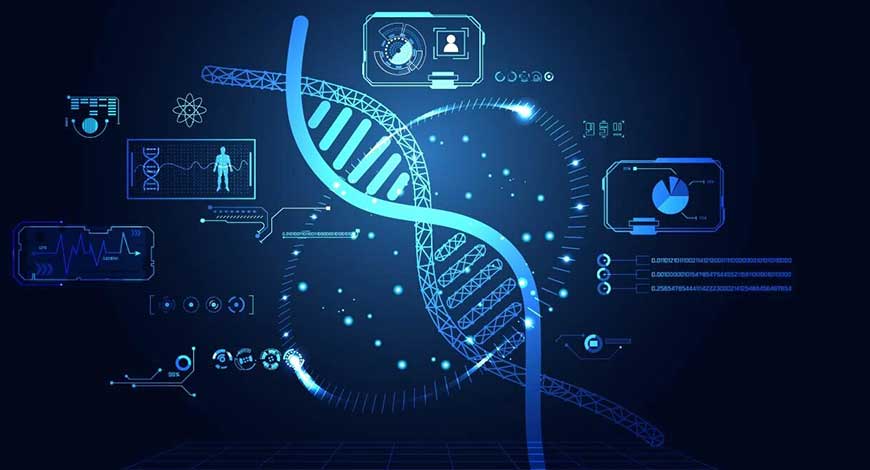Trends
Here are a few AI applications, platforms in healthcare

AI’s integration into healthcare is reshaping the landscape through various critical roles. It aids in disease diagnosis and detection by analyzing medical images like X-rays and MRIs, increasing accuracy and supporting healthcare professionals in making informed decisions. In precision medicine, AI’s analysis of patient data enables personalized treatment plans, improving outcomes. The drug discovery process is accelerated through AI, analyzing vast data to identify potential drugs and optimize treatment protocols. Additionally, AI facilitates remote patient monitoring and telemedicine, providing timely care, especially for remote or chronically ill patients. By automating administrative tasks, AI allows healthcare providers to focus more on patient care, enhancing healthcare services’ overall efficiency and quality. Let’s dive into below mentioned ten AI Applications in Healthcare:
- IBM Watson Health: IBM Watson Health epitomizes the fusion of AI with healthcare, providing solutions that span from clinical decision support in cancer treatment to drug discovery and population health management. Its ability to digest vast amounts of unstructured data and offer evidence-based recommendations helps clinicians make better, faster decisions, particularly in oncology with Watson for Oncology and in genomics, where it aids in uncovering potential treatment options based on a patient’s genetic makeup.
- Google DeepMind Health: DeepMind Health, a pioneering project under Alphabet, demonstrates the vast potential of AI in improving healthcare through projects that include analyzing medical images to detect diseases prior and more accurately. For instance, its collaboration with Moorfields Eye Hospital NHS Foundation Trust to analyze eye scans using AI has shown promise in detecting over 50 eye diseases with expert-level accuracy, potentially transforming eye care.
- Zebra Medical Vision: This innovative company uses AI to read medical imaging, including X-rays, CT scans, and MRI scans, to detect diseases early. Their algorithms can identify signs of diseases such as breast cancer or liver diseases, often much earlier than traditional methods. This early detection can significantly improve treatment success rates and patient outcomes, highlighting the transformative potential of AI in diagnostic processes.
- Butterfly Network: Revolutionizing ultrasound imaging, Butterfly Network’s portable ultrasound device, the Butterfly iQ, is equipped with AI to guide clinicians in capturing and interpreting the best possible images. This device makes ultrasound technology accessible in remote locations and facilitates immediate diagnosis and decision-making, demonstrating how AI can bring advanced medical technology to the point of care.
- Aidoc: Specializing in radiology, Aidoc’s AI solutions analyze medical images in real time to flag acute abnormalities and prioritize patient cases. This accelerates diagnostic processes and ensures critical cases are attended to promptly. Aidoc exemplifies how AI can enhance efficiency and patient care in high-volume clinical settings by integrating seamlessly into existing radiological workflows.
- Tempus: Focusing on precision medicine, Tempus compiles vast datasets combining clinical and molecular data, which its AI algorithms analyze to uncover personalized treatment paths. By identifying molecular patterns and genetic mutations, Tempus offers clinicians insights into tailored treatments, advancing the personalized medicine frontier and exemplifying the bespoke future of healthcare.
- PathAI: By applying AI to pathology, PathAI significantly enhances the accuracy of disease diagnosis. Through the digitization and AI-powered analysis of pathology slides, PathAI assists pathologists in diagnosing diseases like cancer more accurately and swiftly, paving the way for timely, personalized treatment plans and improving the standard of pathology diagnostics.
- Gauss Surgical: In the operating room, Gauss Surgical’s AI applications monitor blood loss in real-time, providing surgeons with critical information to make informed decisions during and after surgery. This technology represents a significant advance in perioperative care, potentially reducing the risk of transfusion-related complications and improving patient outcomes.
- OWKIN: OWKIN utilizes AI to foster collaboration in medical research while ensuring data privacy. Its federated learning approach enables hospitals and research institutions to benefit from shared insights without compromising sensitive patient data. By analyzing diverse datasets, OWKIN accelerates medical research and the development of personalized treatment, marking a significant step forward in collaborative healthcare research.
- Prognos: Prognos applies AI to predict disease trajectories, allowing for beforehand intervention and personalized treatment strategies. By analyzing various data sources, including lab results and electronic health records, Prognos’ predictive analytics can foresee disease progression and treatment outcomes, demonstrating the power of AI in proactive healthcare management.
These applications underscore AI’s transformative potential in healthcare, highlighting its ability to support and enhance the work of healthcare professionals and make healthcare more predictive, personalized, and accessible. As AI technologies continue to integrate into various aspects of healthcare, they promise to significantly improve patient outcomes, operational efficiencies, and overall quality of care. MarkTechPost














